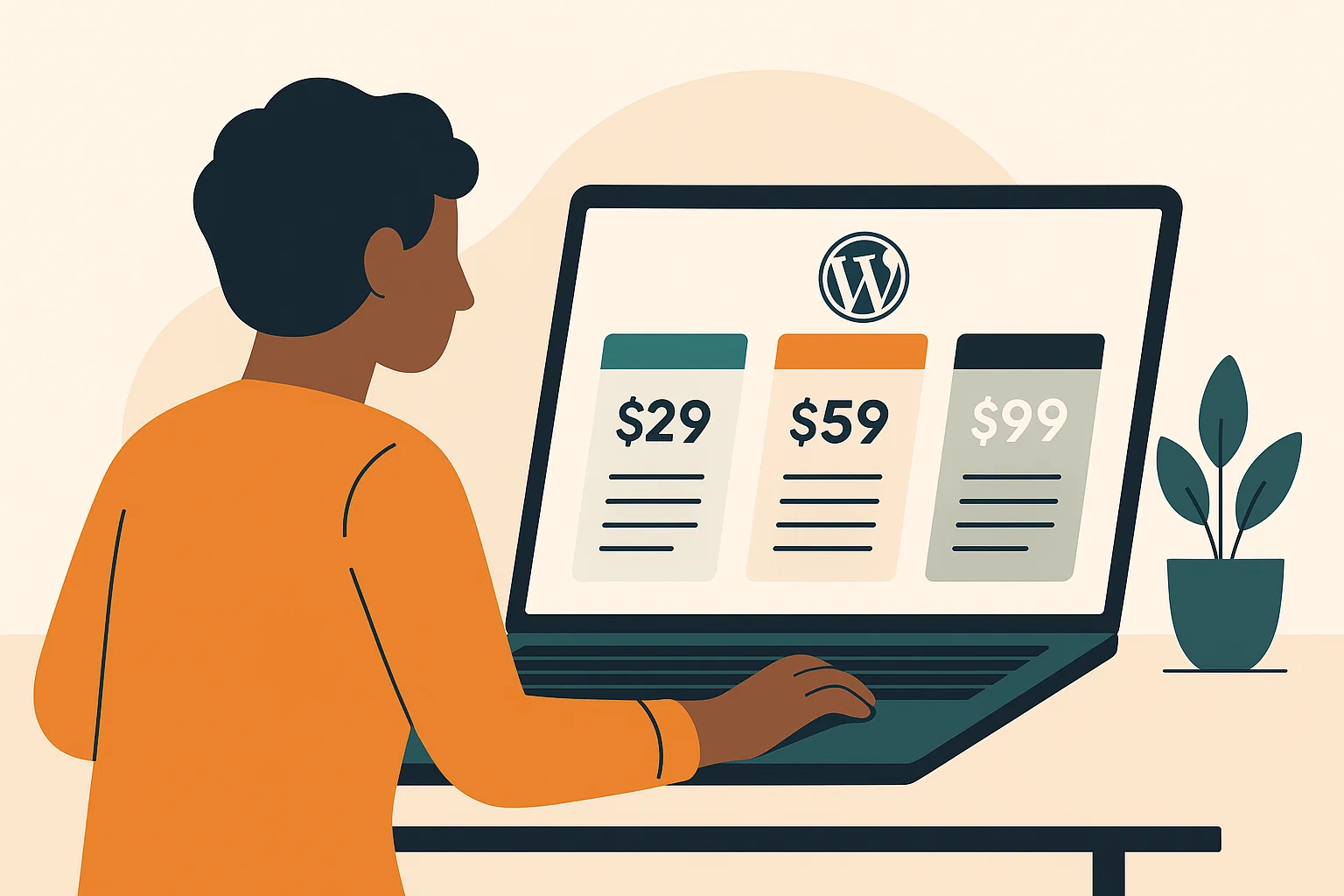
So, let’s break it down together, costs, packages, features, and even how AI tools like ChatGPT fit into the picture.
Why Affordable WordPress Packages Matter in 2025
Think about it: most people launching a site today aren’t giant corporations with deep pockets. They’re solo entrepreneurs, students testing an idea, or local businesses moving online. And in a time when digital presence is as important as a storefront, WordPress remains the most budget-friendly and flexible option.
Affordable packages matter because they help you:
Start quickly without waiting months for development.
Keep costs low while you figure out your online strategy.
Scale up later once you’re making money or getting traction.
It’s not just about “cheap.” It’s about getting the right balance between cost and quality. A $100 site that constantly breaks is more expensive in the long run than a $500 site that runs smoothly for years.
Do People Still Use WordPress in 2025?
A fair question, since new platforms pop up every year. The short answer: yes, massively.
WordPress powers over 40% of websites worldwide.
Major brands like TechCrunch, Sony Music, and The White House still rely on it.
With Gutenberg (block editor) evolving and thousands of plugins, it’s still the most flexible CMS out there.
Other website builders like Wix, Squarespace, and Webflow are growing, but WordPress is still the king of open-source web development. And when you compare costs, WordPress is often more affordable long-term, because you’re not locked into one company’s pricing.
What’s Included in WordPress Development Packages?
When you look at “packages,” you’ll notice they often include similar core features. Let’s unpack them so you know what you’re paying for.
1. Basic Setup & Hosting
Every package starts here. A developer (or agency) sets up WordPress, connects your hosting, and configures the database. Some packages also include domain registration.
2. Theme Selection & Customisation
You’ll usually get a free or premium theme installed. Good packages include basic customisation like your brand colours, logo, and homepage layout.
3. Plugins & Functionality
Expect essentials like:
SEO plugin (Rank Math or Yoast)
Security plugin (Wordfence or Sucuri)
Backup plugin (UpdraftPlus)
Contact forms
4. SEO & Performance Setup
Affordable doesn’t mean ignoring SEO. Many packages include basic optimisation, meta tags, sitemap, caching setup, and image compression.
5. Security & Maintenance
A good developer will add SSL, malware protection, and maybe a firewall. Some even offer monthly updates as part of the deal.
Affordable vs Premium Packages – What’s the Difference?
Here’s where beginners often get confused. Why does one package cost $200 while another costs $2000?
The difference usually lies in:
Design depth: Affordable = prebuilt themes; Premium = custom designs.
Support: Affordable = limited email support; Premium = 24/7 dedicated help.
Features: Affordable = standard blog/business site; Premium = complex e-commerce, memberships, or custom apps.
Time: Affordable = 1–2 weeks; Premium = 1–3 months.
The trick is knowing what you actually need right now. If you’re starting a simple blog or service site, an affordable package is more than enough.
How Much Does a WordPress Developer Cost in 2025?
Developers charge differently depending on region and skill:
Freelancers in Asia/Eastern Europe: $10–$40/hour
Freelancers in USA/UK: $50–$150/hour
Agencies: $500–$5000+ per project
But most affordable packages are fixed-price deals, starting from $200–$600 for a small website.
If you want advanced e-commerce, expect $1000–$3000 minimum. Still, compared to custom-coded websites, WordPress remains budget-friendly.
DIY vs Hiring a Pro – Which Saves You More?
You might be wondering, “Can’t I just build it myself?” Yes, you can. WordPress is open-source, and with drag-and-drop builders like Elementor, it’s easier than ever.
But here’s the catch:
DIY saves money upfront but costs time (learning curve).
A pro saves time but costs money.
The middle ground? Get a developer for setup, then manage content yourself.
That way, you get a professional foundation without overspending.
Budget Checklist: What WordPress Costs Should You Plan For?
Even with an affordable package, there are recurring costs you should budget for.
| Item | Cost Range (per year) | Notes |
|---|---|---|
| Domain | $10–$15 | Standard .com or local extension |
| Hosting | $30–$200 | Shared hosting is cheapest, VPS for growth |
| Themes | Free–$70 | Premium themes for unique design |
| Plugins | Free–$200 | Many are free, but premium add features |
| Maintenance | $50–$300 | Optional, but worth it for updates & security |
👉 Tip: Start small. You don’t need to buy 20 plugins on day one. Stick with essentials.
Can ChatGPT Build a WordPress Website?
Here’s where things get interesting in 2025. While ChatGPT can’t “physically” install WordPress on your server, it can:
Generate custom code (CSS, PHP, HTML snippets).
Suggest plugins for specific needs.
Help you troubleshoot errors.
Even write entire blog drafts and SEO titles.
So yes, you still need hosting and installation, but AI can dramatically cut development time, making affordable packages even more efficient.
Where to Find the Best Affordable Packages Online
Now the practical part, where do you actually get these deals?
Freelance platforms (Upwork, Fiverr, Freelancer) – Great for affordable one-off projects.
Specialised agencies – Some agencies offer budget packages for startups.
Local developers – Don’t ignore local talent; sometimes they’re cheaper and more responsive.
DIY with AI assistance – Pair a cheap hosting plan with ChatGPT guidance, and you’ve got the ultimate low-cost setup.
Smart Ways to Save Without Sacrificing Quality
Here’s the takeaway: you don’t need to break the bank to launch your website. Affordable WordPress website development packages give you all the basics, hosting, themes, plugins, and security, without the fluff that drives up prices.
The smart move is to start lean, grow gradually, and upgrade when your site starts making money. Invest wisely, and your online presence can go from a $300 starter site to a full-scale business hub.
If you’re still unsure, test the waters with a free theme and minimal hosting. Once you feel confident, invest in a developer package. Remember, the web rewards action, so don’t wait months planning while others are already online.

Alex WebPro, your guide to web mastery. Expert tips on WordPress, SEO, monetization, and the best in design trends and themes.